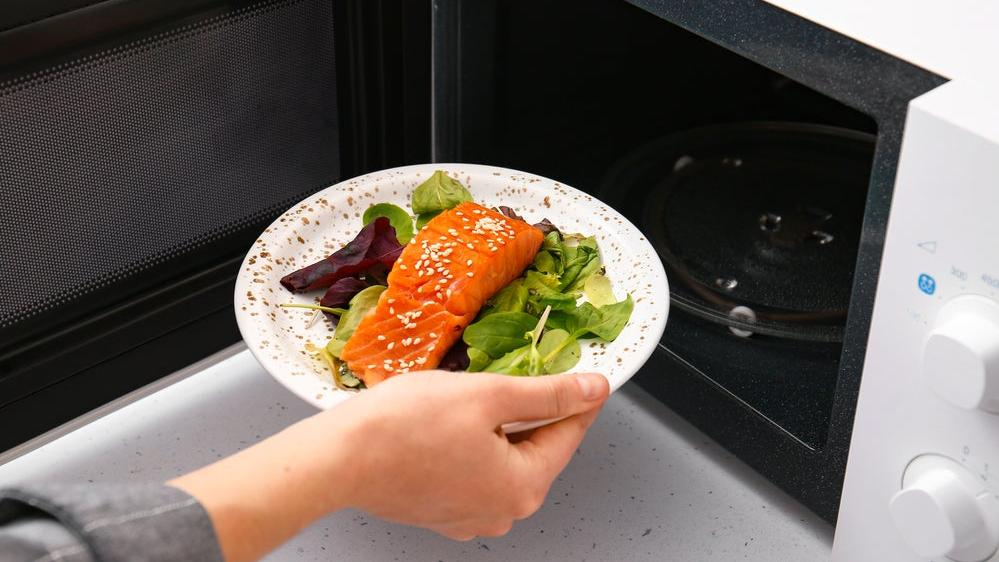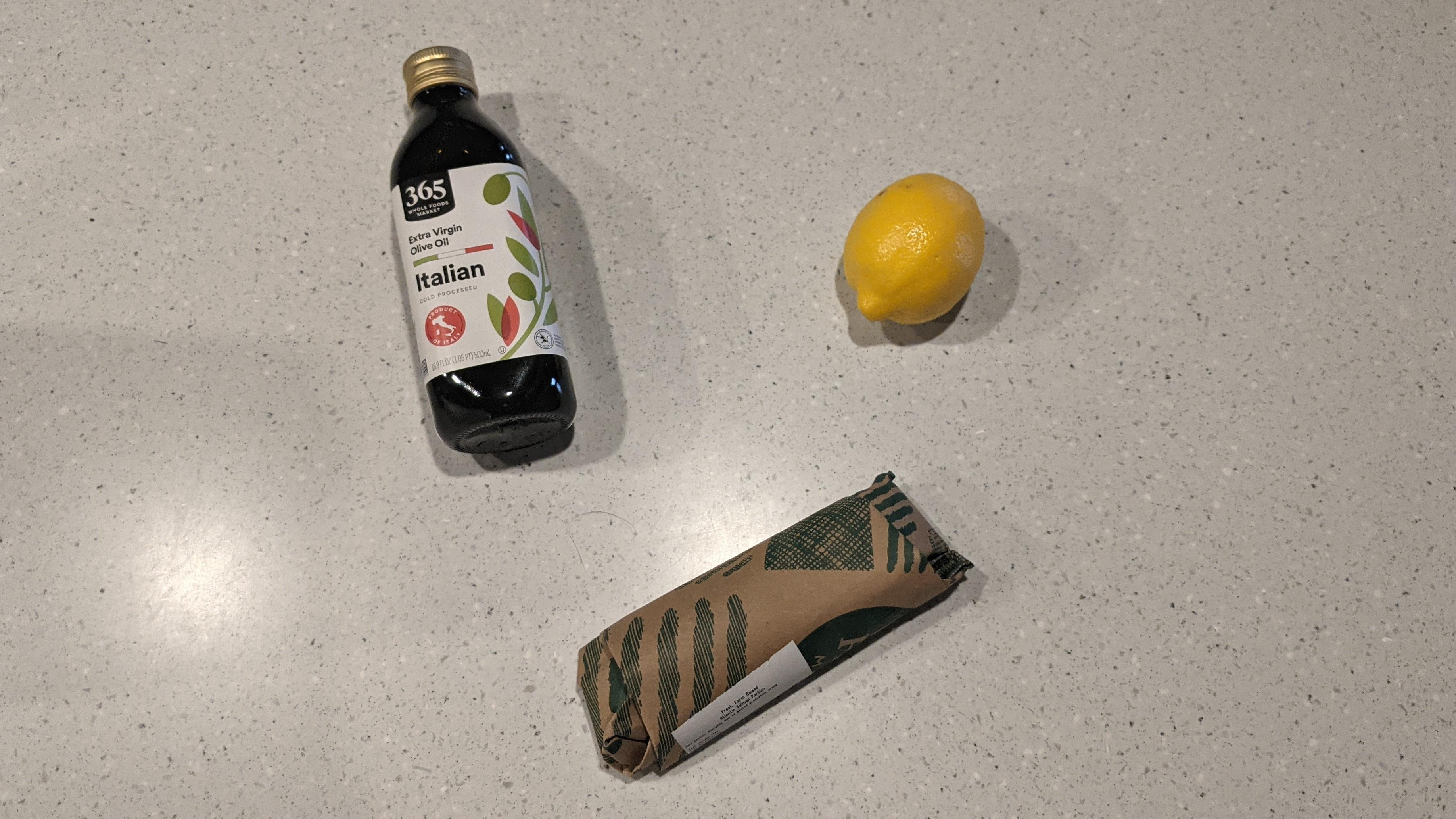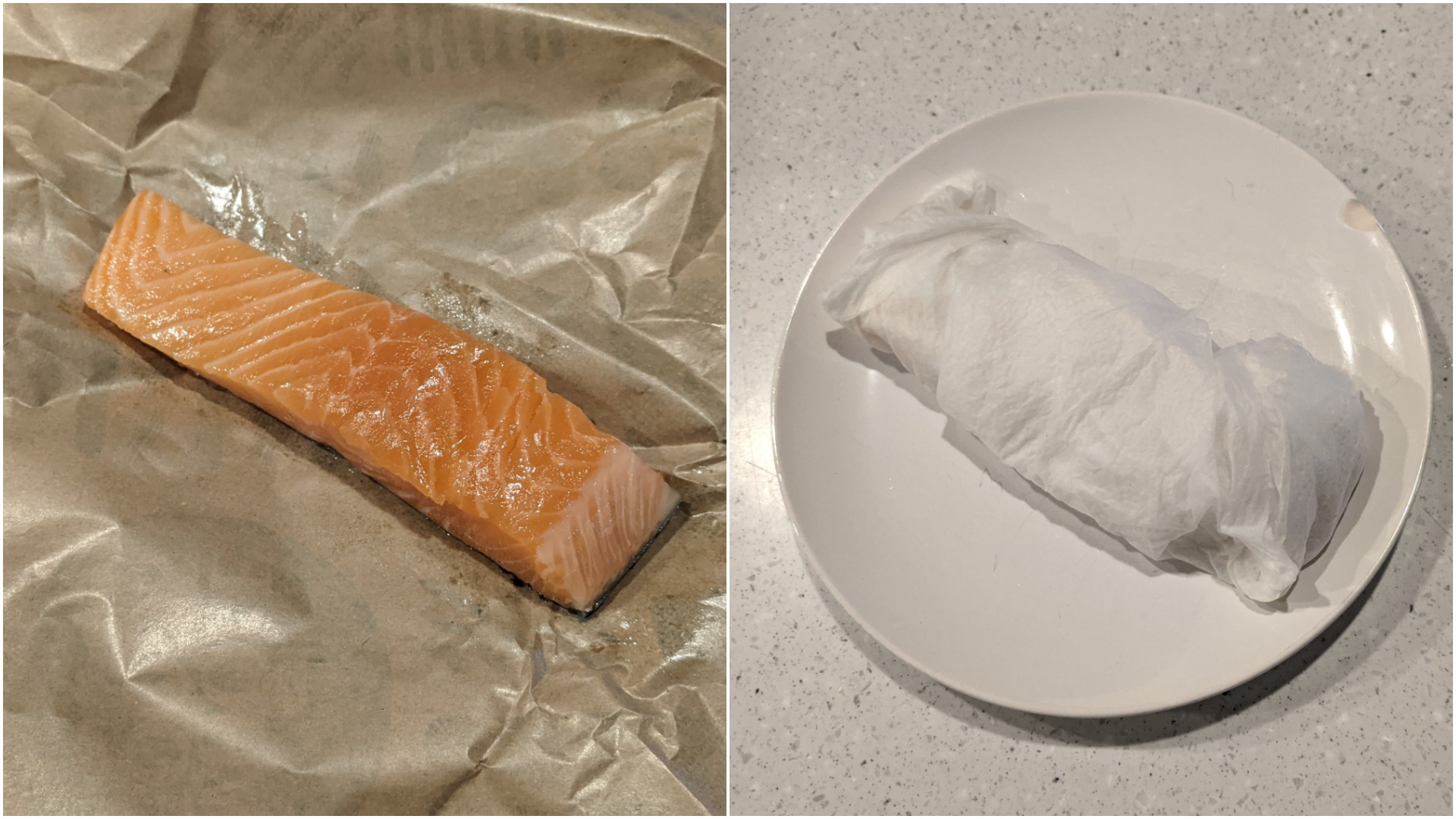Yes, You Can Cook Salmon In The Microwave
Stephen King microwaves his fish, and that's fine.
When Stephen King tells you to do something, you do it. Get vaccinated! Gaze upon this cute dog! Read the latest Ken Follett! The celebrated author is one of Twitter's early tastemakers, with 6.6 million followers amassed across his near decade of tweeting. So when he recommended a horrific salmon dish on social media this week, people felt shocked, betrayed, and ready to dunk on Stephen King like never before.
"Dinner," begins King's tweet, a propos of nothing. "Get a nice salmon filet at the supermarket, not too big. Put some olive oil and lemon juice on it. Wrap it in damp paper towels. Nuke it in the microwave for 3 minutes or so. Eat it. Maybe add a salad."
As you might imagine, much of the response was some form of, "This is the scariest piece of writing Stephen King has ever produced." Some people pointed out that someone with his level of wealth and fame needn't settle for microwaved fish. Patricia Arquette threw a wild curveball, warning King of the dangers of cooking with paper towels.
King describes himself as someone who "spends a lot of time in the kitchen," so it can be safely assumed that he knows alternative ways of preparing oily fish. The man might simply like using the microwave to cook his fish. Maybe he's so busy inking TV and film deals that he hardly has time to wait for a cast iron skillet to preheat on the stove. Maybe the man just wants another excuse to use paper towels, a kitchen tool he has already expressed admiration for. Fast prep, easy cleanup. What could be better?
Why the microwave freaks people out
The ingredients in King's salmon "recipe" are not what the internet is taking issue with (though the lack of salt and pepper does seem a bit bland). Instead, it's the use of the microwave to cook the fish. And I get it! Microwaves can do ugly things to meat if you don't choose the right setting, or if you don't set yourself up for success by choosing the right meat in the first place. Raw meat? Sure, that'll cook right up, as long as you don't expect a nice sear on it. Chicken nuggets? Also fine—but they're not going to be crispy if you microwave them. That's just not how microwaves work.
If you want char, crisp, or crackle, you'll need to go with the oven or air fryer. Consequently, for many of us, the microwave is often relegated to accomplishing our secondary kitchen tasks: zapping leftovers, reviving cold cups of coffee, or melting butter for a recipe. But it doesn't have to be such an afterthought.
Just because microwaves can't do everything doesn't mean they can't do a bunch of things well. And we don't need to freak out about the idea of cooking meals "from scratch" with the microwave. The idea of doing so is outmoded now, but that's absolutely what these appliances promised us at the dawn of the microwave cooking era, back in the 1980s. Entire cookbooks were dedicated to the concept, and Betty Crocker still assures us that you can go ahead and cook a chicken dinner for four without so much as a skillet to your name. Certain textures will never be achieved with microwave cooking, but sometimes you don't need them. And if all you want is some cooked salmon to mix into a salad or grain bowl, you don't need crispy skin.
How to cook salmon in the microwave
No point in defending Stephen King if his salmon absolutely sucks, though. So I had to try it for myself. I bought the nicest salmon filet at Whole Foods within my budget, which is to say, the cheapest one behind the seafood counter by a wide margin. I picked up the most beautifully ripe lemon, grabbed some olive oil, and got down to (very little) work.
Another reason people don't cook food in the microwave is because they're so convinced they'll overcook food in the microwave. And if you don't adjust the settings, that can very well happen. I used medium power so as not to nuke the fish until it was tough and dry.
The key to this recipe is the damp paper towels, which steam the fish and keep it from an overcooked, chewy fate. It was so steamy after three minutes that I could hear angry bubbling underneath the paper towels as I unsheathed it. And you do want to remove it from those paper towels quick, because they get cold fast.
King's oddest instruction is to put the lemon juice on before microwaving; save that for after you take the fish out, because citrus is a finisher. Just let the olive oil do its work by itself during the cooking process. Although if you plan on eating this as King suggests—i.e., plain—then for god's sake, add some salt and pepper to the filet. Seasoning is your friend.

The final product was boring, but fine. It's fine! It's. Fine. Don't freak out. It doesn't taste like much, and needs more lemon juice, plus spices, to make it something I'd actively enjoy eating. But the low power plus the steam of the paper towels meant there was nothing wrong with the texture of the cooked fish. It's not photogenic in the slightest. It's a purely functional cut of fish. And that's fine.
I wouldn't, as King suggests, eat this somewhat bland salmon right out of the microwave with a salad. I'd probably toss it with some farro, drench it in a spicy tahini sauce, and then add some peppery arugula. And if I'm cooking farro, preparing a tahini sauce, and washing arugula, that's just about how much time I'd need to cook the salmon in the oven, anyway. So unless I've got those other elements batch-prepped in the fridge already, the microwave simply presents limited benefits. But there's nothing wrong with the microwaved salmon itself.
Do I prefer my salmon cooked other ways? Sure, but that didn't make this one unpalatable or unconscionable. If all you want is some straightforward protein cooked through properly—and I can think of a lot of times when that's all I need salmon to be—then you save yourself a good 20 minutes (plus pan-washing time) by turning to the microwave. Which, in turn, affords you more time in front of your cobweb-strewn typewriter to ponder how you're going to resurrect Pennywise the clown.


